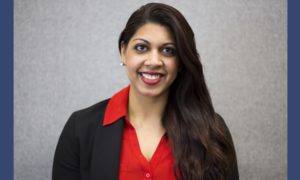As Election Day draws closer, America’s youngest potential voters grow more glum.
Over the past year, 18- to 29-year-olds have become less likely to vote and less engaged in politics, according to a poll released today by the Institute of Politics at Harvard University.
“Typically, as we move closer to an election, people feel more enthusiastic,” said John Della Volpe, the institute’s polling director. But this year, “as we get closer to the election, the Millennial Generation’s enthusiasm has been waning.”
That’s more bad news for Democrats and President Barack Obama, who are trying to reignite young voters to stave off expected Republican gains in next month’s elections. While the poll showed that millennials still prefer the president and a Democratic-controlled Congress, more and more of them don’t care enough to act.
Young people’s disenchantment with Obama and the Democrats since their 2008 election victory appears to be a milder version of the feelings expressed by Americans overall in other polls. “The change Obama talked about was extreme change,” said Harvard sophomore Lily Nottingham, who helped to draft the questions. “The lack of extreme change has caused young voters to feel that maybe what they voted for in 2008 has not been all that effective.”
As with many Americans, she said, millennials believe that the changes have been subtle; many of them, for example, have not yet felt the impact of the health care overhaul. At the same time, Della Volpe noted, in many states the unemployment rate among this age group is far higher than among older adults.
The Web-based poll of 2,004 millennials was conducted from Sept. 24 to Oct. 4. Sixty-six percent said they were registered to vote. Summaries of the findings are here. The researchers compared the results to similar polls the institute conducted in November and February. Among the latest findings:
* 27 percent of those polled said they definitely will vote next month, a drop of 4 percentage points from February and 9 percentage points from November. Sixteen percent say that they will “probably be voting”; the rest are “50-50” or leaning against going to the polls.
* 18 percent defined themselves as “politically engaged,” down from 24 percent in both November and February.
* 49 percent approve of President Obama’s job performance, down from 56 percent in February and 58 percent in November. (The latest Gallup poll shows Obama’s approval rating among Americans overall at 46 percent.) A theoretical race against any unnamed Republican for the White House in 2012 stands in a virtual tie – about 30 percent each, with “don’t know” garnering 39 percent – but Obama comes out far ahead of several specific Republicans, such as Sarah Palin and Mitt Romney.
* Millennials rank Congress even lower, but prefer Democrats there. Twenty-eight percent approve of the Republicans in Congress and 39 percent approve of the Democrats, both a decrease from last year. Fifty-three percent prefer a Democratic-controlled Congress, and 42 percent prefer it to be Republican-controlled.
* 34 percent said they don’t support the Tea Party, 11 percent said they do, but most said they’re not sure.
“It’s another indication, frankly, of lack of enthusiasm or engagement in the political process for 2010,” Della Volpe said.
Previous coverage: Obama Fields Questions in Youth Town Hall.






























